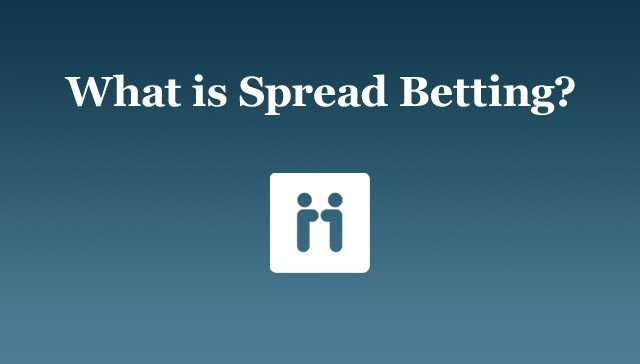 Spread betting is a derivative strategy, where participants do not actually own the underlying asset they bet on, such as a stock or commodity. Rather, spread bettors simply speculate on whether the asset's price will rise or fall using the prices offered to them by a broker. Key characteristics of spread betting include the use of leverage, the ability to go both long and short, the wide variety of markets available and tax benefits.
Spread betting is a derivative strategy, where participants do not actually own the underlying asset they bet on, such as a stock or commodity. Rather, spread bettors simply speculate on whether the asset's price will rise or fall using the prices offered to them by a broker. Key characteristics of spread betting include the use of leverage, the ability to go both long and short, the wide variety of markets available and tax benefits.
As in stock market trading, two prices are quoted for spread bets - a price at which you can buy and a price at which you can sell. The difference between the buy price and sell price is referred to as the spread. A company offering currency spread betting usually quotes two prices, the bid and the ask price. Traders bet whether the price of the currency pair will be lower than the bid price or higher than the ask price. The narrower the spread, the more attractive the currency pair.
Though spread betting is a form of trading, there are a number of differences between spread betting and more traditional forms of trading. However, there are further contrasts which serve to differentiate spread betting from other types of trading, such as the concept of leverage. Essentially, leverage, also known as margin, means that spread bettors have the ability to place large trades with an initial stake which is only a fraction of the value of the actual position. This is different to traditional trading, where the sum total of the trade equals the amount staked on the trade.
Since the initial sum put in is smaller, if the markets move in a way which is beneficial to the trade then the profit margin can be much higher than it is in regular trading. However, if the markets move in the opposite direction, the loss-making potential is significantly greater than it is in regular trading, since with certain forms of spread bets traders can lose more than the amount they have invested, something not possible with traditional trading.
Unlike CFDs which are open-ended contracts, spread bets have expiry dates. Spread betting positions, however, can usually be rolled over. The close-out price at expiry will be an official "settlement price" calculated by the bookmaker using a formula set out in the customer agreement. Gains/losses will be the points difference between the settlement price and the opening buy/sell price times the stake per point.







